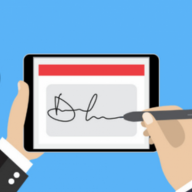3 Effective ways to establish yourself as a true professional in your industry

Learning & Development
196 week ago — 8 min read
1 Challenge
“I’ve been told that I’m highly skilled, talented and knowledgeable in my area of work. However, my peers and mentors also tell me that I’m not 'professional’ enough!”
2 Questions
“What does it mean to be a ‘professional’?”
“How can I establish myself as a true professional?”
3 Steps
Improve your skills
Work on your behaviours, etiquette and communications
Be prepared
Fact #1: In the modern era, competition for jobs and roles is heating up.
Fact #2: Technology is already playing a very critical role in the world of work. In fact, technology is so firmly entrenched now that worries about job losses (say, due to Artificial Intelligence) are now commonplace.
For anyone who is aware of these facts – and even for those who are not – it’s important to find a way to stand out from the crowd. This is true for any person in any line of work, any industry and any country.
And one of the best ways to do this is to establish yourself as a professional – someone with strong work ethics, a unique skillset, thorough practical knowledge and exceptional people skills. It also helps if you can look the part!
So how can you establish yourself as a professional?
Here are 3 ways that are proven to work!
1. Improve your skills
No one can know everything about their industry or role all the time. Nonetheless, you can improve your skills and knowledge every single day. Practice your craft and hone your skills. Research your work area: read journals and articles, attend events, meet other professionals in your industry. Do a refresher course in your area of expertise. Or add to your skillset by working on a course in a different (somewhat related) area.
No one is perfect. Work on your weaknesses and shortcomings. If required, ask your organization or immediate supervisor for support. A self-aware person who honestly acknowledges their own weaknesses is always appreciated and even admired.
Upgrade your skills. Add any certificates or diplomas you earn to your resume, LinkedIn profile and anywhere else you have a professional social media presence. Mind your tone though! Don’t boast about your achievements; keep the language simple and matter of fact.
Also read: Focus on the right metrics
2. Work on your behaviors, etiquette and communications
Social media is so ubiquitous nowadays that it’s impossible to live like a hermit. Complete privacy is a myth, and so is a non-judgmental world. Anything you do in your professional life is being noted, commented on and criticized by someone somewhere, so it’s important to work on your behaviors and etiquette in every area.
Do your clothes reflect you as a professional? What about your general appearance? Long hair, tattoos and piercings may be acceptable in a creative profession (Rockstar, anyone?!), but in a more “staid” profession like Banking or Financial Services, such an appearance will make you look unprofessional. You may even be labelled a misfit or potential problem-maker. Dress the part in the best quality garments you can afford. Nothing too tight, short or revealing. Avoid loud colors and bold patterns. If you’re not sure, it’s best to remain conservative. You can never go wrong with a formal suit or semi-formal pants, shirts or saris. Wear a hairstyle that suits both your personality and your profession.
Here are some more tips to look like a professional:
- Don’t overdo the accessories. Professional and tacky do not go together
- Carry a low-key bag that’s in good repair
- Wear clean shoes
- Avoid loud jewelry, scarves or watches
- Maintain a balance between stylish and comfortable. If your job requires you to stand or walk a lot, does it make sense to wear 4” heels?
What about etiquette? As a professional in the 21st century, you also need to mind your etiquette in many different areas: email, face to face, social media, telephone, etc. To come across as a thorough professional, follow these guidelines:
- Practice “active listening”. Listen more than you talk. And don’t interrupt!
- Put your phone away when talking to people, and in social situations (e.g. a seminar)
- If you are expecting an important call and receive it in a social venue, excuse yourself and take it outside
- Answer missed business calls and emails as soon as you can. Invest in voicemail services or hire a receptionist or secretary
- Look people in the eye while talking; make them feel important
- Use behaviors like mirroring and rephrasing to let people know that you are listening to them
- Give firm handshakes (but don’t break people’s bones!)
- Never chew gum when meeting with people. Avoid conducting meetings while eating
- If you’re meeting in an office, don’t play background music
- Always maintain a professional tone of voice over the telephone, email and in face-to-face meetings
- Proofread all outgoing communications, even if it’s a 2-line text message
- On social media, keep your business profiles and posts professional
- Never post anything that could embarrass or harm you (or your company) later
Also read: 5 Powerful Ways to Charge your Business Communication Skills
3. Be prepared
The world of work is constantly changing, and you need to be prepared for this. Stay on top of updates and trends in your industry. Talk to seniors and experienced professionals, and get their viewpoints. Use this information to improve your own knowledge and work.
It’s also important to be prepared in your day-to-day work life. This means you show up on time for appointments, present an enthusiastic face to the world (even if you’re not feeling particularly enthusiastic), act business-like at all times and always, always say “please”, “excuse me” and “thank you”.
Next, are all your supplies and equipment up-to-date and in good order? If you need to give demonstrations, ensure that you are ready at a moment’s notice. If not, you may lose opportunities and accounts. Make sure the demo asset is working the way it’s supposed to. Practice your spiel. Prepare answers to commonly-asked questions. Be prepared to make deals – make sure you have the authority to say Yes to a new prospect, or to sign on the dotted line.
What about your paperwork? Do you take weeks to prepare contracts, scope of work documents, project plans or invoices? Invest in technology that can help you shorten timelines. Make sure all your documents are neat, well-organised and readable. Double-check them for errors and missed information. A client who spots a mistake is a client you’ve probably lost.
When you take care of all these aspects, you are more likely to come off as a thorough professional. If you don’t, you will quickly earn a poor reputation for unprofessionalism. And no one wants to do business with someone like that!
A final word
It’s very important to maintain a professional business image at all times. We hope this article has shown you how to maintain the whole professional package, from dressing to impress, to how to behave and communicate. Invest some time and energy in making this effort. The results will be worth it!
Also read: The inseparable relationship between emotional intelligence & leadership
To explore business opportunities, link with me by clicking on the 'Connect' button on my eBiz Card.
Image source: shutterstock.com
Disclaimer: The views and opinions expressed in this article are those of the author and do not necessarily reflect the views, official policy or position of GlobalLinker.
Posted by
Lion Amir ViraniTech Evangelist| Thought Leader | Social Entrepreneur | Enthusiastic Networker | Speaker| Startup Mentor
View Lion Amir 's profile
Most read this week













Comments
Share this content
Please login or Register to join the discussion